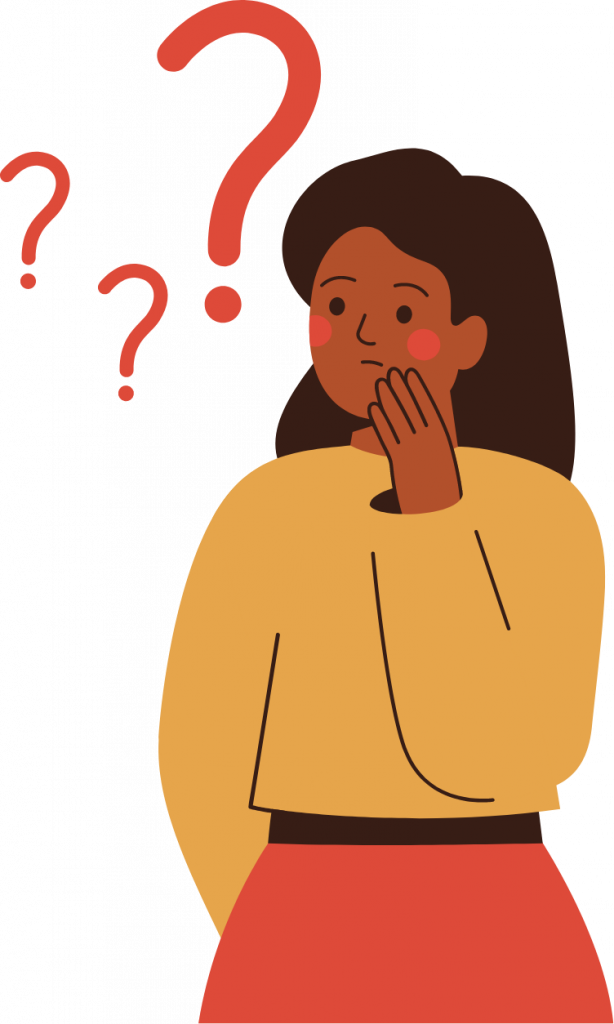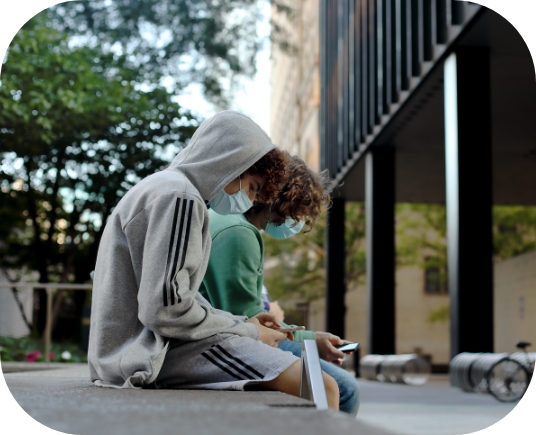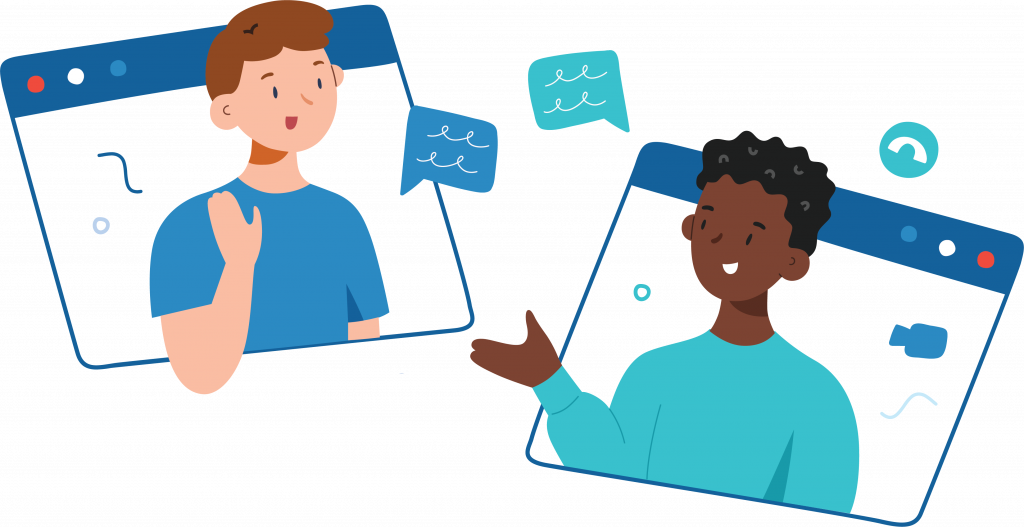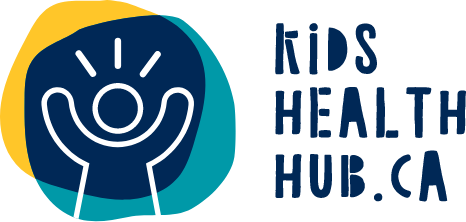

Substance Use/Abuse
What Is It?
Sometimes our friends experiment with substances, but when does it become a problem? Substance use disorder is when a person uses a substance despite it being harmful to them. The person becomes preoccupied with using the substance. They want/continue to use it even though it negatively impacts their daily lives. Substance use disorders can also be called addictions.
Addictions begin to impact the brain and its functioning. There may be changes in the person’s personality, logic, reasoning, memory, and learning. It begins to impact the brain’s structure. In the brain, there is a reward pathway. When it is activated, it feels good. It rewards the person which makes them want to keep doing that thing whatever it may be. When a drug is taken excessively, it activates the reward pathway. This encourages behaviour because the brain is rewarding the person. As the person seeks this reward, this may result in neglecting daily activities.
People commonly associate addictions with substances, but people can also have addictions to behaviours (activities). These behaviours can also activate the reward pathway in the brain. These behaviours can include gambling, gaming, shopping, and more. Behavioural addictions also negatively impact a person’s life and relationships.
Myths and Facts
FACT – Addiction is not a choice.
While it can feel like a person prioritizes the substance or behaviour over other aspects of their life, it is not that simple. Addiction is a brain disease. It is not a person simply choosing the substance over other things. A big part of addiction is a person’s inability to stop or moderate their use. This loss of control is the result of changes in the brain from the addiction.
FACT – Marijuana is addictive.
There is a common misconception marijuana is not addictive. This is incorrect. The psychoactive ingredient in marijuana is tetrahydrocannabinol, commonly referred to as THC. THC imitates a naturally occurring chemical in the brain, which results in the brain producing less of the chemical when a person consumes THC. This changes the brain. The person now needs THC to feel like themselves and for the brain to function. This also builds tolerance so the person will need to consume more marijuana to feel the effects of it. If a person stops using marijuana, it can result in withdrawal symptoms (moodiness, tiredness, feeling on edge, irritability, etc.). If a person uses marijuana before their brain is fully developed (mid-20s), it has been linked to increase in memory problems, difficulty thinking clearly/paying attention, higher risk of mental health concerns (like depression and anxiety), decreased school performance, and greater chance of addiction.
FACT – Addiction is a compulsion and the person does not have control.
A person with addiction is not in control of their cravings. The reward pathway in their brain has been activated repeatedly which makes the craving stronger. The brain compulsively wants the activity or the substance. It is not a personal weakness. It is biology. The brain and body are craving the substance/activity and go through withdrawal (either physical or psychological) without it. This brings the question of why do some people become addicted to certain things, and others do not? According to research, genetics and other factors play a role. It is how the brain processes things. It is about how the brain processes the substance and how the person perceives the feelings they receive from it.
FACT – While some people see experimentation as a rite of passage, substance use in teens can have negative consequences.
A little experimenting never hurt anyone, right? This unfortunately is not true. Before a person is in their mid-20’s, their brain is not fully developed. If someone uses drugs before their brain is fully formed, it can increase the chance of negative consequences. Substance use in teens can lead to:
- Contribution of poor health problems as an adult (heart disease, liver disease, sleep disorders, etc.)
- Increase the risk of mental health concerns as an adult (anxiety, depression, suicidal ideations, addiction, bipolar disorder, schizophrenia, etc.)
- Increases the change of other risky behaviour
- Negatively impact growth and development, especially brain development
Many people have been educated that “drugs are bad” but people do not really talk about why or the consequences. It makes the consequences seem less real, but they are very real.
For example, using marijuana as a teen has been linked to a higher risk of depression, anxiety, suicidal ideations, schizophrenia, addiction, and paranoia. If a teenager uses cocaine, it makes changes to the cells in the brain which results in behavioural, developmental, and cognitive (thinking) impairment.
FACT – It is possible to be addicted to prescription drugs like any other substance.
When someone uses a prescription outside of a doctor’s recommendation, it can have dangerous consequences. This is drug abuse. Some people think they are safe because they come from a pharmacy, but that is incorrect. While prescription drugs are safe for the person who has been prescribed the medication, it is not safe for others to use without doctor assessment and recommendation. People who abuse prescription drugs often do so for fun, better studying, to fit in, or lose weight. They often use them because they can be easier to obtain than illicit or street drugs. There are several dangers of abusing prescription medications, such as addiction, overdose, heart failure, seizures, and slowed heart rate. Complications increase when prescription drugs are mixed with other substances such as alcohol.
FACT – Relapse is common in recovery.
Addictions can cause changes in a person’s brain which may impact self-control and the capability not to act on cravings. It is important to work on relapse prevention during recovery because the risk of relapse can be high. Without relapse prevention, it can be very challenging to abstain from the substance or behaviour to which the person is addicted. If relapse does occur, it is important to seek help. It is not hopeless. There are ways to work to prevent relapse. It takes time and effort, but it is possible.
FACT – Treatment is not simply one size fits all. There are many types of treatments for addiction.
There are many different types of treatments to help someone with an addiction. Typically, treatment starts with detoxification and managing withdrawal symptoms. Treatment can be:
- Long-term residential treatment
- Short-term residential treatment
- Outpatient treatment programs
- Individualized drug counselling
- Group counselling
It is about finding what works best as everyone is different.
FACT – Medication can help a person cope with the withdrawal symptoms and make it easier to stay sober.
Using medication to treat addiction is under the supervision of a doctor. The medication helps to treat withdrawal symptoms. There are different types of medications to help with different substance addictions. It is safest and easiest to seek treatment for addiction with the help of a medical professional.
Seeking help from a professional is very important when recovering from an addiction. Otherwise, a person can replace one addiction for another, like trying to quit drinking and switching to marijuana or vice versa.
FACT – In addition to being addicted to substances, a person can be addicted to a behaviour or action.
People have long accepted addictions to substances. They are well-known, but addictions to actions are lesser-known. Behavioural addictions can be to activities such as food, gaming, social media, the internet, and shopping. The person can feel calm or happy when they do the activity they are addicted to. Addictions to substances and actions have similar characteristics, like increased tolerance, cravings, change in mood, issues with relationships, and a hard time controlling or stopping the behaviour. Behavioural addictions do not have physical symptoms like substance addictions.


Causes of Substance Use/Abuse
There are several reasons why someone might start using drugs or using the behaviour. The person might be trying to escape, deal with stress, peer pressure, experimentation, or enhance performance. It depends on the person and their experiences. Not everyone who tries drugs (or the activity) will become addicted, so why do some people become addicted, and others do not?
That is a very complex question. There is not just one reason. For some people, it could be due to genetics or family history. A family history of addiction increases the risk of developing an addiction. It also can depend on how long and frequent the person has been using the substance or activity. The more a person uses the substance/activity the higher the risk they will become addicted.
What Does It Look Like?
The signs can be separated into 4 categories.
Impaired Control
- Cravings or strong urges to use substances
- Hard time cutting back or controlling the substance
- Thinking about using the substance
- Using more than intended
Social Problems
- Neglecting responsibilities
- Problems with relationships
- Spending a great deal of time obtaining the substance
- Lying, stealing, etc. from loved ones
- Problems at work, school, or home because of substance use
- Treating loved ones poorly
- Isolating self
- Hiding addiction
Risky Use
- Engaging in addiction despite negative consequences
- Using in risky settings
- Neglecting self
- Spending money on the addiction even when there is no money for it
- Risky behaviours like driving while under the influence
Drug Effects
- Building tolerance (needing more of the substance to feel it or get the same effect)
- Withdrawal (physical or psychological symptoms of not using the substance)
There could also be physical symptoms which are different for each substance. They could include, but are not limited to:
- Change in pupil size (big or small)
- Not taking care of self (showering, changing clothes, brushing hair/teeth)
- Change in speech (slurred, slow deliberate, fast, etc.)
- Not sleeping or sleeping more
- Bloodshot or puffy eyes
- Changes in weight (gain or loss)
- Poor coordination
- Muscle tension
What to Do if You Are Struggling With Substance Use/Abuse
If you feel like you are struggling with an addition to a drug or action, it is important to reach out for help.
Seeking help can sound like an intimidating task and it can seem overwhelming, but it is so important. You deserve to feel better and be happy.
- Acknowledge that you are not doing well. Remember, it is okay not to be okay. Everyone has hard times. It takes a very strong person to admit they are not doing well. It is about seeking help when you are not doing well.
- Tell someone. Tell someone you trust who can help to support you. If you tell someone and they do not listen to you or take you seriously, tell someone else. That is not a reflection on you! If you tell a friend, it is important you tell an adult, too. While it can sometimes feel like adults do not always listen and you and your friend can handle it, you need to tell an adult. You deserve help. People you could tell include parents, caregivers, spiritual leaders, elders, counsellors, teachers, or coaches. It could be anyone you trust or feel safe with.
- Surround yourself with supportive people. Find people who support and encourage you. This can also include pets! Have people you can talk to when you need them.
- Take care of yourself. Do (healthy) things which help you feel good! Check out the Tips for Wellness below or the Wellness Sessions.
- Remember you’ve got this! You deserve to feel happy and healthy.

How Can You Help?
When someone tells you they are struggling with addiction, it can be scary and hard to know what to say. That is a terrifying thing. It is easy to become caught up in emotions. Many people fear saying the wrong thing. We often want to try to fix our friend’s problems or counsel them, but that is not your job. Your main job is to tell someone and connect your friend to help.
The following are some guidelines of what to do when your friend tells you they are struggling and how to handle those difficult conversations. There is a good chance your friend will talk to you before they talk to their parents/guardians. This is not to counsel the person. This is to get the person connected with a helping professional. Please remember the conversation will not be linear like on the page.
These are guidelines of some things to consider:
The person is telling you something scary and personal to them. This is terrifying for both of you. Take a moment to gather yourself and take a deep breath.
- Do not judge your friend. What they are coping with might not seem like a big deal to you, but it is to them. Therefore, it is valid.
- Sometimes when someone tells us how they are struggling, we react with anger or judgement because we are scared. We might say something like “Oh my goodness! How could you say/think something so stupid?”; “Don’t be dumb”; or “How could you say something like that?” As you can imagine, this is not helpful for your friend. What your friend hears is “you are stupid/dumb.”
- Do not interrupt your friend. Being interrupted is very frustrating. It can make the person feel like they are not being heard.
- Put your phone down! Have you ever talked to someone who is on their phone, and they don’t hear a word you say? It can be very frustrating. Treat your friend with the respect they deserve.
- Be the best friend you can be and the person you would like if you were in that situation.
Your friend needs to get help. This is not something you can deal with without professional/adult help. Sometimes, it can feel like adults do not listen or take problems seriously, but this is something you need to talk to an adult about. Help your friend think of someone they trust.
Try saying something like:
- “Have you thought about who else you could talk to about this?”
- “Have you told anyone else?”
- “Who do you feel comfortable talking to about this?”
- “Okay let’s find you some help. Who do you feel comfortable telling?”
If they feel like they have no one they can trust, talk to someone you trust. Thinking of who to talk to can be really challenging when you are struggling because if can feel so lonely. If your friend is having a hard time thinking of someone to talk to, help connect them with resources, like a school counsellor, elder, spiritual leader, or family liaison worker. You can also offer your friend some helplines they can call when they are struggling too. If you are comfortable, you can also offer to go with your friend to talk to the adult. If the first person you tell does not listen, tell someone else.
If your friend asks you to keep it a secret, you cannot keep it a secret. There are things we keep secret for friends, like their crush or that embarrassing story they swore you to secrecy about, but there are three instances where you must break your friend’s confidence. Eating disorders have many negative health consequences.
- They are going to harm themself.
- They are going to harm someone else.
- They are being harmed by someone.
Talking to a friend who is struggling is challenging. Talk to someone about it to help cope with the stress of the situation. This does not mean gossip but using your own support system. Practice self-care. Do something you enjoy. For self-care ideas, visit the self-care section here.
Sometimes, people will not want to talk to you. That is okay. It is their choice. Simply let them know you are there to talk if they need someone and give them resources, like hotlines they can call whenever they want to talk to someone.

How Do You Ask Someone About Their Mental Health?
If you have a feeling something is going on, have a conversation with the person if you feel comfortable talking to them. (If you do not feel comfortable, that is okay. You just need to tell someone who will have the conversation with them and connect them with help).
The following are some guidelines of what to do if you suspect someone is suicidal or not doing well. This is not to counsel the person. This is to get the person connected with a counsellor, doctor, or another professional. Please remember the conversation will not be linear like on the page. These are guidelines of some things to consider.
Before You Have the Conversation
- Make sure you have time for it
- You are in a place the person will feel comfortable talking to you
- Approach the situation with compassion
- Make sure you are willing to listen
- Remember you can initiate the conversation and let them know you are there, but it may take some time before they talk to you.
- Take notice. If you feel like something is going on with someone, there likely is something. Trust that gut instinct.
- Talk to them. Open the conversation in a nonjudgemental and compassionate way. Start off by stating a change you have noticed. Use “I” statements so it does not feel like you are accusing them.
- Example: “Hey, I have noticed you have been cancelling plans lately. How are you doing?” or “I heard you putting yourself down in class. What’s been going on?”
- Listen. Listen to hear and understand. If you do not understand something they are saying, paraphrase and ask them to clarify. Listening means putting down your phone and giving them your undivided attention. Let the person talk. Do not feel the need to fill the silence. Allow them the space they need. Sometimes, we want to interject our opinion, but this is about the person, not your opinions. While you listen, approach the situation with nonjudgement and compassion.
- Connect the person with help. If their level of risk is high and they cannot keep themselves safe, connect them with emergency services. If they are not a danger to themselves, they still need help. Connect the person with a counsellor, agency, or person they can talk to about what is going on in their life.
DO NOT keep it a secret. You must tell someone so the person gets help. You must connect the person with a mental health professional.
Follow-up Support for Someone Struggling with Substance Use/Abuse
- Be understanding. – Addiction is hard! Show your friend compassion
- Support your friend in making healthy choices
- Give your friend a choice of helplines to call when they need someone to talk to
- Have fun with your friend. – If your friend is struggling with alcohol, do something fun with them that does not involve drugs or alcohol.
- Practice boundaries. – You need to take care of you too! Boundaries are healthy for everyone.
- Be honest with your friend. – For example, if you have no idea what addiction is like, tell them! Do not pretend to know what they are going through
- Respect their privacy
Things to Avoid:
- Gossiping about your friend’s mental health
- Threatening or shaming them
- Telling them how to feel
- Acting as your friend’s counsellor
- Telling your friend what to do
- Using the substances around your friend
- Asking them to join you to do something that is part of their addiction (drinking, gaming, vaping, etc.)
Tips for Wellness

Tips for wellness when coping with addiction:
- Be patient and kind to yourself
- Seek professional help with coping with addiction and any underlying issues
- Get help with withdrawal symptoms
- Try to avoid replacing one addiction with another
- Build healthy connections with others and focus on positive relationships
- Learn what triggers your addiction
- Develop positive coping skills
- Exercise
- Go outside
- Connect with family, friends, or pets
- Meditate
- Read
Click here for more self-care ideas
Further Resources
All articles referenced above are collated here for your convenience and further reading
Addiction Treatment Medications – Addiction Center
Addiction: Definition, Symptoms, Traits, Causes, Treatment (verywellmind.com)
Behavioral Addictions, What Are They? – Addiction Center
Biological Causes of Addiction (mentalhelp.net)
Disease Model | Alberta Adolescent Recovery Centre (AARC)
Drug Relapse | Drug Addiction Relapse Statistics & Prevention (drugabuse.com)
Get help with substance use – Canada.ca
How to Quit an Addiction: Advice on Stopping (verywellmind.com)
Is Addiction a Choice? – Mental Health First Aid
Loving an Addict or Alcoholic: How to Help Them and Yourself (americanaddictioncenters.org)
Marijuana Addiction and Abuse – Understanding Marijuana Abuse (addictioncenter.com)
Maturation of the adolescent brain (nih.gov)
Overcoming Addiction: How to Get It Under Control for Good (verywellmind.com)
Prescription drug abuse – Symptoms and causes – Mayo Clinic
Prescription Drug Abuse (for Teens) – Nemours Kidshealth
Signs of Addiction | Drugs, Alcohol, & Prescription Drugs (advancedrecoverysystems.com)
Teen Substance Use & Risks | CDC
Types of Treatment Programs | National Institute on Drug Abuse (NIDA)
What Is Addiction? (psychiatry.org)
What You Need to Know About Marijuana Use in Teens | Fact Sheets | Marijuana and Public Health | CDC
If you would like to speak to someone about mental health issues, the Alberta Health Services Mental Health Help Line is available 24/7, offering information and referrals on any aspect of mental health.
Call toll-free: 1-877-303-2642
Trending Topics
Depression
Depression What Is It? Depression is a mood disorder which means it impacts how a person is feeling. It can cause a person to feel
Accidental Overdose
Accidental Overdose What Is it? An overdose is what happens to someone’s body when they take too much of a substance or too many substances.
Online Relationships
Online Relationships Online can be fun! There are games, music, and videos. We can talk to friends and family online. Tips for Being Safe Online:
Online Relationships
Online Relationships Online can be fun! There are games, music, and videos. We can talk to friends and family online. Tips for Being Safe Online:

